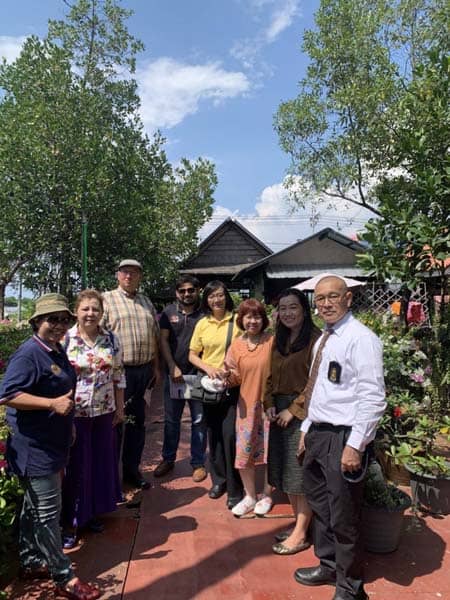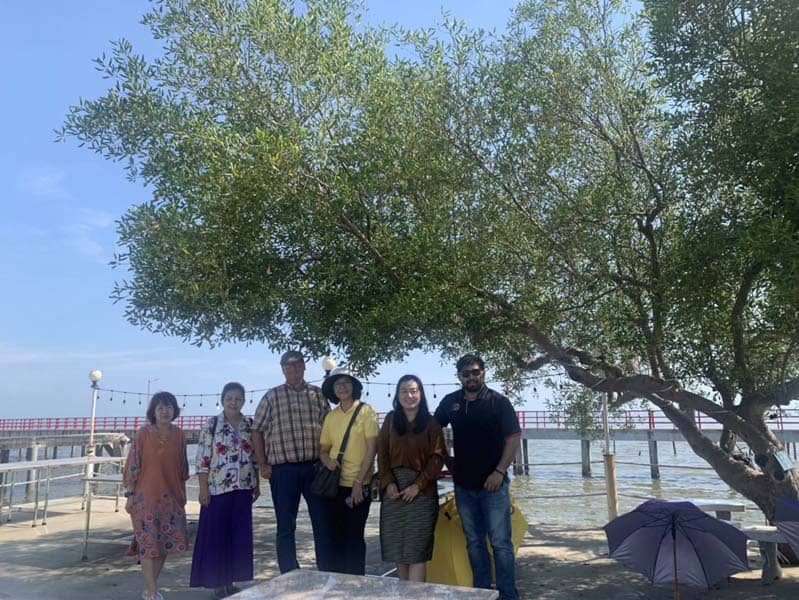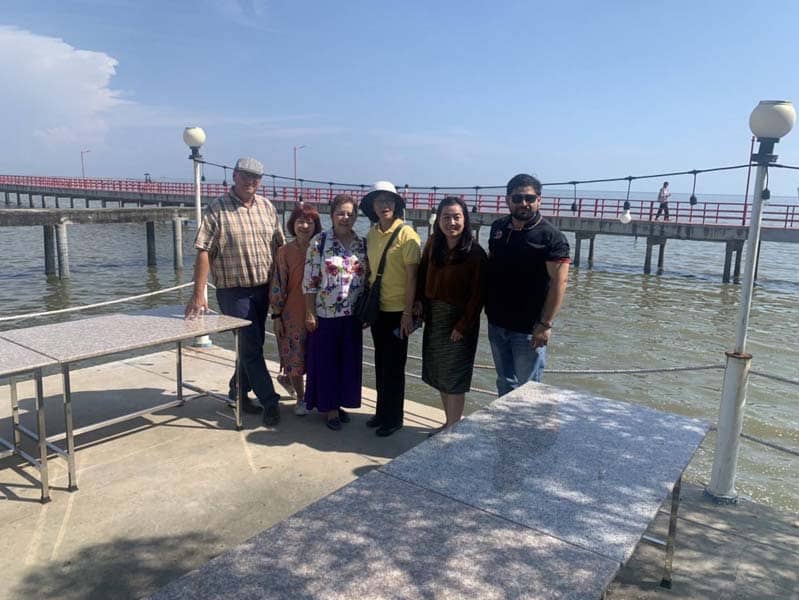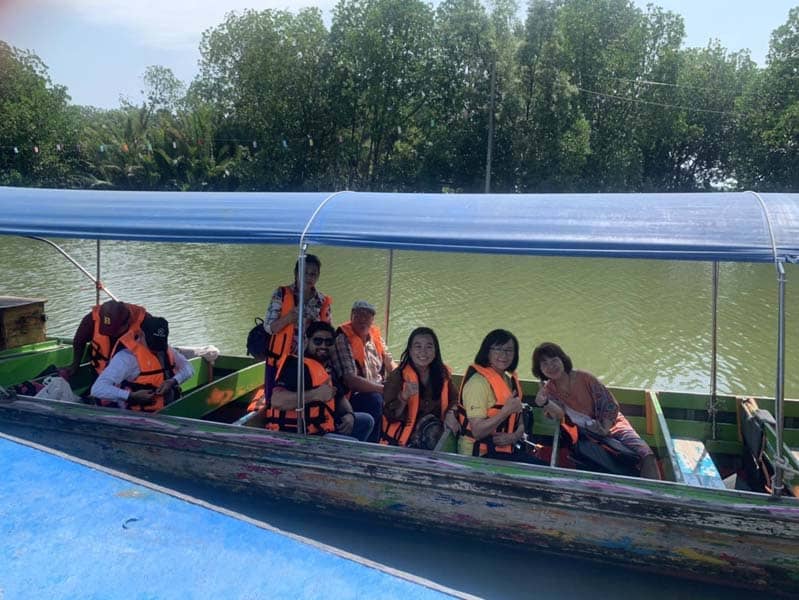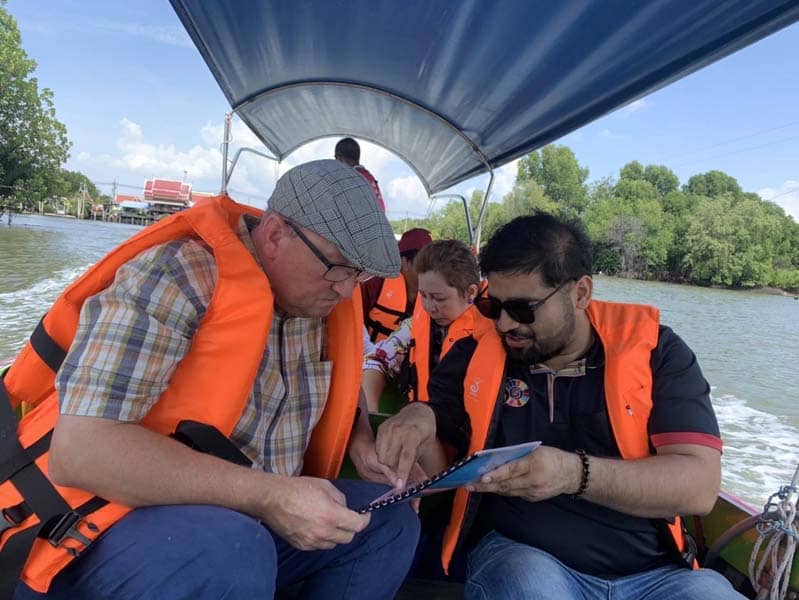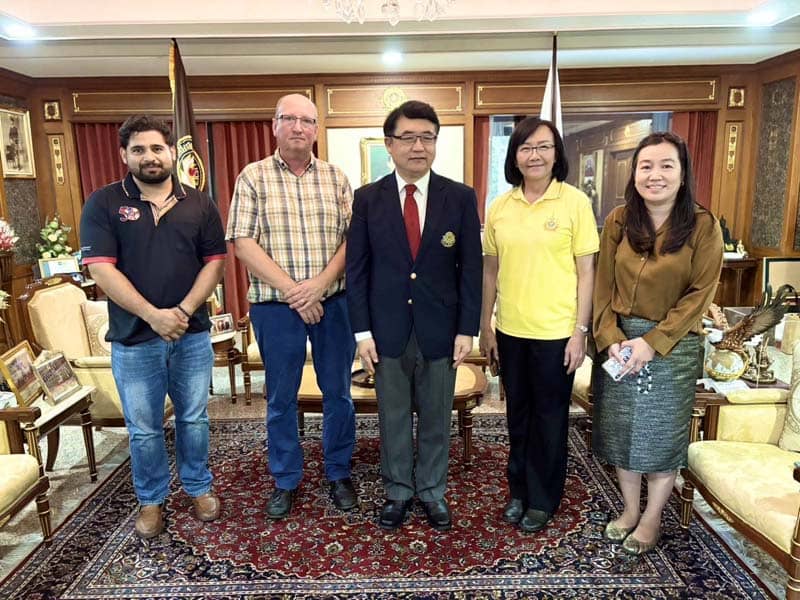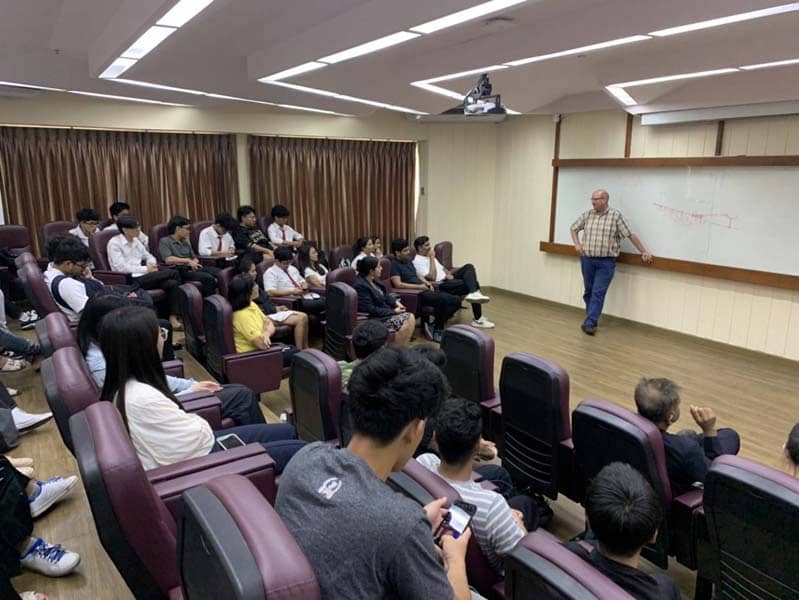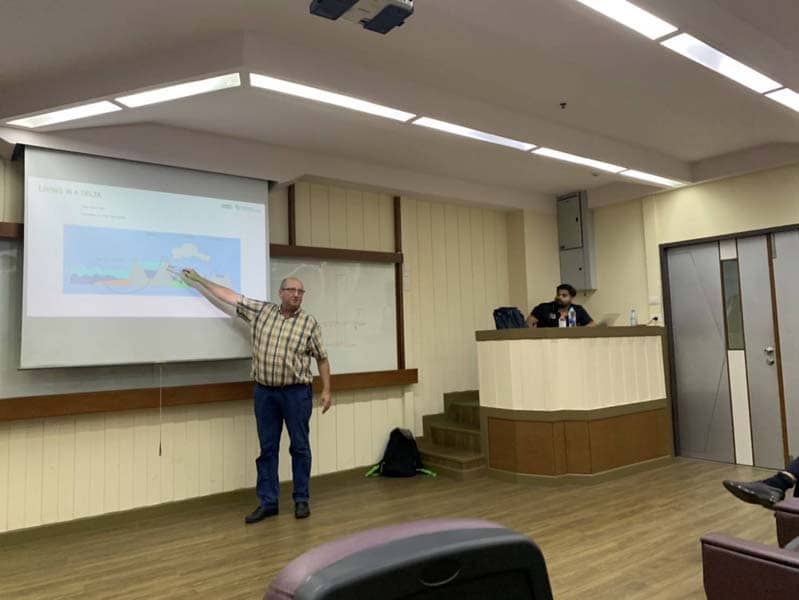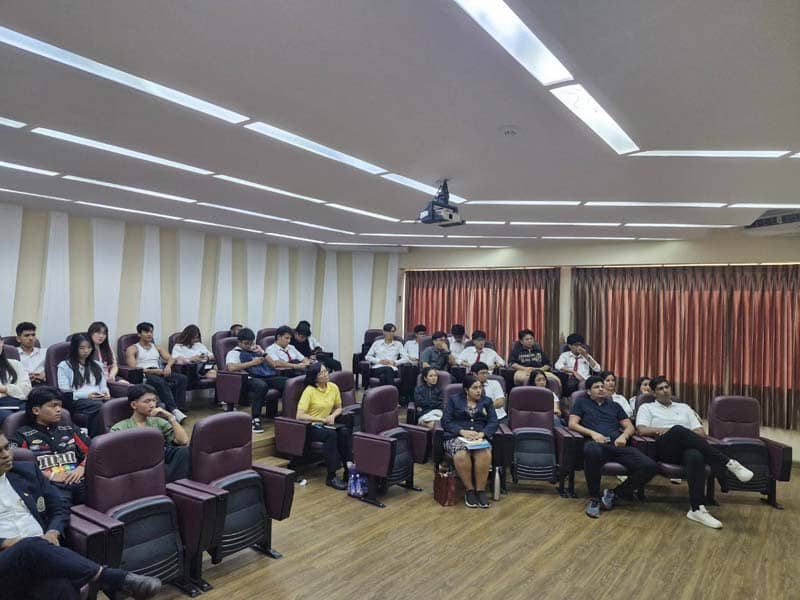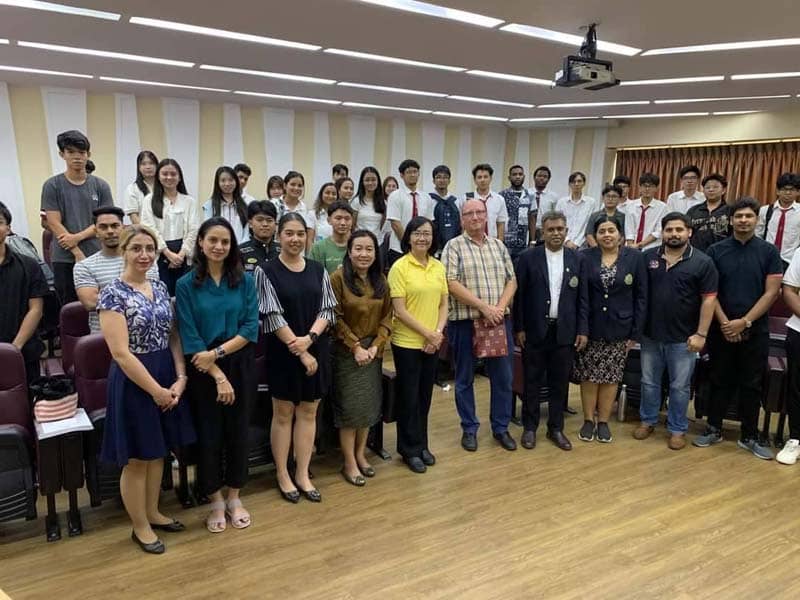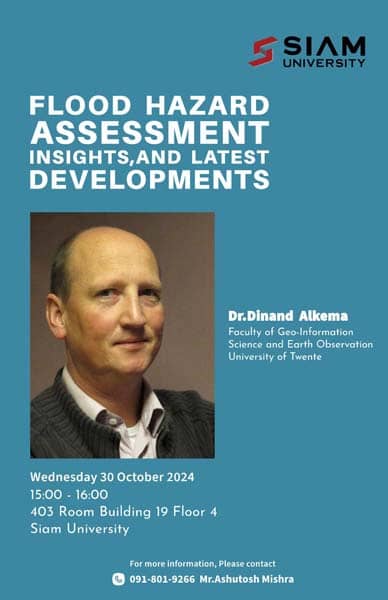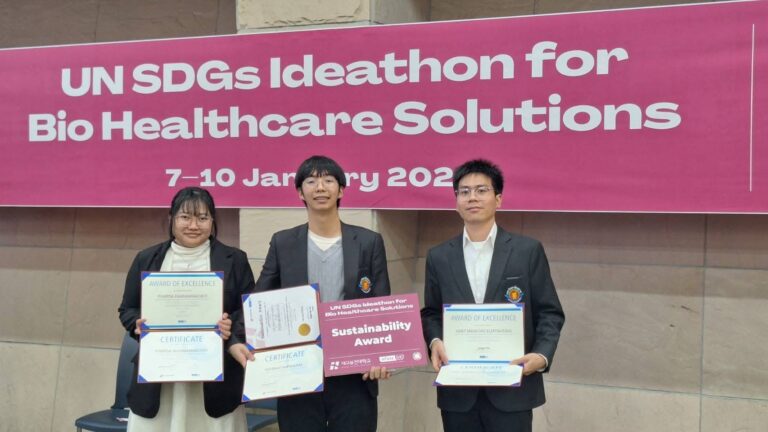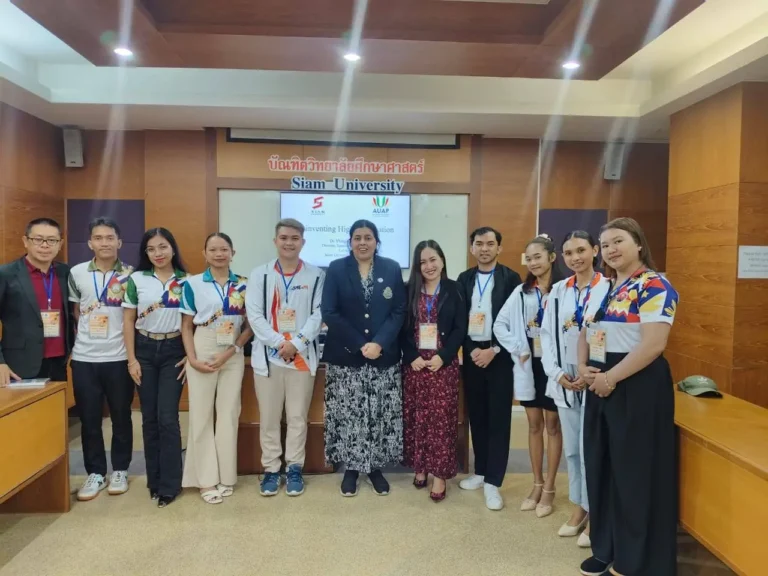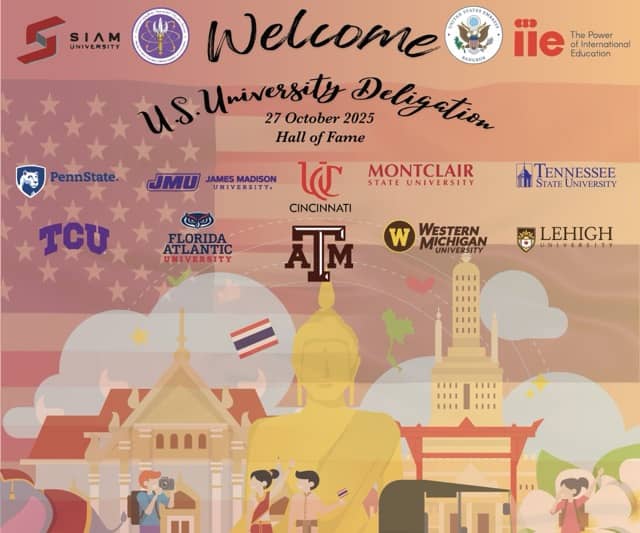On October 30, 2024, Siam University had the pleasure of hosting Dr. Dinand Alkema, an esteemed expert in flood hazard assessment and natural disaster management. Dr. Alkema, currently a project manager at the Faculty of Geo-Information Science and Earth Observation at the University of Twente, visited Siam University to share his insights on flood hazard assessment and highlight the latest developments in flood risk management. His extensive knowledge and experience were invaluable for the attendees, particularly for students and professionals in environmental science, geography, and urban planning.
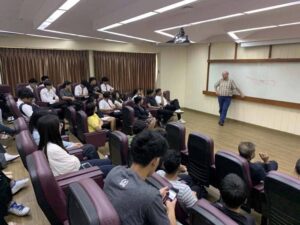
Dr. Alkema is a trained physical geographer with an MSc and PhD from Utrecht University in the Netherlands. His background is rooted in studying natural hazards, particularly landslides and floods, and he has dedicated his career to developing effective risk assessment methodologies that contribute to disaster resilience. A rich blend of practical and academic experiences marks his career journey. He has worked in the private sector and various educational institutions, including the University of Milan, where he researched flood impacts in Italy’s Adige Valley as part of the EU-funded GETS project. His commitment to advancing the field of natural hazard assessment has led him to work extensively in Southeast Asia, Latin America, and the Caribbean, executing numerous projects and conducting training on multi-hazard risk assessment.
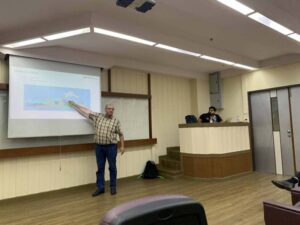
During his talk at Siam University, Dr. Alkema delved into three key strategies for managing flood risks, particularly relevant to Thailand, a country facing challenges similar to those in the Netherlands, where flood management has long been a national priority. The strategies discussed included:
1. Planting Mangrove Trees: This approach uses natural solutions to combat floods. Mangrove trees play a crucial role in absorbing excess water, particularly during heavy rains and storms, thus providing a natural buffer against flooding and coastal erosion. Thailand’s coastal regions, much like the Netherlands, stand to benefit from expanding mangrove forests as part of their flood prevention efforts.
2. Sand Pumping: By redistributing sand to vulnerable areas, sand pumping creates barriers that can effectively shield against storm surges and floods. Dr. Alkema emphasized how sand pumping strengthens coastlines and mitigates erosion over time.
3. Constructing Seawalls: This more conventional engineering solution involves building seawalls that protect against rising water levels, particularly in urban areas and along coastlines prone to flooding.
Dr. Alkema highlighted the ongoing challenges in response to a question about Sustainable Development Goal (SDG) 13 and the feasibility of achieving its climate action objectives by 2030. He noted that while there has been significant progress, meeting these goals fully by 2030 might require additional time and resources, especially given the unpredictable nature of climate change and the rate of urban development in flood-prone areas.
During a highly interactive Q&A session, Dr. Alkema engaged with students and faculty. Many international students were curious about the viability of current flood risk management measures concerning urban expansion, particularly high-rise developments. Given Thailand’s rapid urbanization, participants were eager to know if flood management strategies would keep up with the country’s future infrastructure needs. Dr. Alkema affirmed that investment in advanced flood control measures would offer long-term benefits, ensuring environmental protection and safety for residential developments.
Students and attendees praised the session for its insights into global flood management techniques and left with a heightened awareness of the complexities involved in tackling flood risks. The event also underscored the importance of adopting a proactive approach to environmental challenges like global warming. It reinforced the university’s commitment to educating future leaders in sustainable development and disaster risk reduction.
The event marked another successful collaboration between Siam University and international experts, and the knowledge shared will undoubtedly help students and professionals as they address the unique environmental challenges faced by Thailand. Dr. Alkema’s visit highlighted that, through science and innovation, countries worldwide can work towards a more resilient future against natural hazards.
